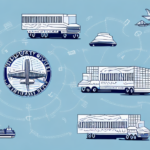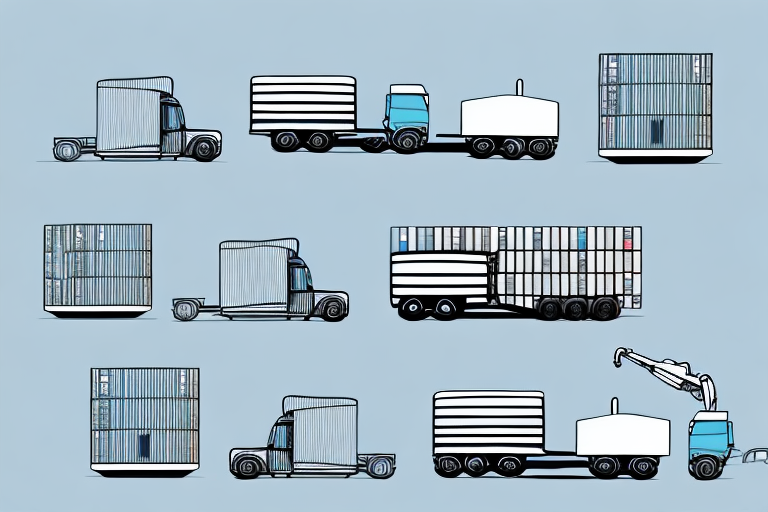Understanding Delivery Contracts
A delivery contract is a formal agreement between a delivery service provider and a client. It outlines the terms of the delivery service and the requirements the provider must meet, such as delivery timetables, cargo loads, and other specific conditions. The contract also specifies the compensation the provider will receive for their services.
An essential aspect of delivery contracts is the liability of the delivery service provider. In the event of any damage or loss of cargo during transit, the contract should clearly state who is responsible for the damages and how the compensation will be calculated. Both parties must agree on the liability terms before signing the contract to ensure clarity and fairness.
Another critical consideration when drafting a delivery contract is the termination clause. This clause outlines the circumstances under which either party can terminate the contract, such as breach of contract or failure to meet the agreed-upon terms. Including this clause protects both parties in case of unforeseen circumstances.
Finding and Qualifying Delivery Contract Opportunities
Identifying Suitable Opportunities
To find the right delivery contract opportunities, research online portals, such as government contracting websites and business directories, and attend trade shows and networking events. Target delivery contracts that align with your business's capabilities and capacity to deliver services in a timely and cost-effective manner.
Direct Outreach to Potential Clients
Another effective method is reaching out to potential clients directly through cold calling or email outreach. Understand the client's needs and requirements before making contact. Building relationships with existing clients can also lead to repeat business and referrals to new clients.
Qualification Criteria
After identifying potential opportunities, assess the contract's technical requirements, including legal requirements, insurance coverage, and financial stability. Demonstrate that you have the necessary resources, technology, and experience to fulfill the contract requirements.
Research the company or organization offering the contract to tailor your proposal to their specific needs, increasing your chances of being selected. Networking with industry professionals and seeking references or recommendations can also strengthen your proposal.
Preparing and Submitting a Competitive Bid
Organizing Your Business
Before submitting a bid or entering negotiations, organize your logistics and transportation processes. Ensure your team has the necessary skills and equipment to fulfill the contract requirements effectively.
Financial Preparedness
Delivery contracts often require significant upfront investments in equipment, personnel, and inventory. Understand your cash flow and financial projections to meet these obligations without jeopardizing your business's financial health.
Developing a Winning Proposal
Review the contract requirements carefully and develop a competitive pricing and service proposal. Consider the client's business goals and mission to tailor your proposal to their specific needs.
Assess your company's capacity to fulfill the contract requirements, including workforce, equipment, and technology. Have a contingency plan in place for unexpected events that may affect your ability to deliver goods or services.
Present your bid professionally and compellingly. Ensure your proposal is well-organized, easy to read, and visually appealing. Include charts, graphs, or other visual aids to illustrate your pricing and service options, and proofread thoroughly to avoid errors.
Negotiating Contract Terms
After submitting your proposal, you may be invited to negotiate the terms of the delivery contract. Prepare thoroughly and enter negotiations with a clear understanding of your limits and expectations. Be open to compromise and aim for mutually beneficial solutions with your client.
Ensure the contract is a win-win situation for both parties, meeting your needs as a supplier while satisfying the client's requirements. Communicate clearly and listen actively to your client's concerns to build a strong working relationship and increase the chances of future business opportunities.
Fulfilling Contract Obligations
Efficient Delivery Management
Upon signing the delivery contract, fulfill your obligations efficiently and effectively by developing robust communication channels with your client, implementing quality control measures, and ensuring prompt and accurate delivery services.
Maintaining Transparency
Maintain transparency with your client by providing regular updates on the status of their deliveries, including any delays or issues that may arise. Address concerns or complaints promptly and professionally to maintain a positive relationship.
Risk Management
Avoid common pitfalls such as late deliveries, damaged goods, and improper documentation by developing a comprehensive risk management plan. Adhere to industry best practices and invest in technology to streamline your delivery processes.
Stay up-to-date with the latest regulations and compliance requirements related to transportation, customs, and other relevant areas to minimize the risk of legal issues and other complications.
Evaluating and Scaling Your Delivery Contract Partnership
Performance Evaluation
Regularly evaluate the success of your delivery contract partnership by reviewing performance metrics such as delivery timeframes and customer satisfaction scores. Make necessary adjustments to consistently meet your client's needs.
Cost-Effectiveness
Analyze your expenses, including transportation costs, labor costs, and other related expenses, to ensure efficient operations and maximize profits. Identify areas for cost reduction without compromising service quality.
Maintaining Communication
Maintain open communication with your client throughout the partnership. Regularly check in and address any concerns or issues promptly to build trust and strengthen the partnership. Inform your client of any changes or updates to the delivery process, such as changes in delivery times or routes.
Scaling Your Business
Securing and fulfilling delivery contracts can help scale your business and increase revenue streams. Continuously optimize your delivery services and build strong client relationships to expand your business and establish a reputation as a reliable and efficient delivery service provider.
Legal Considerations in Delivery Contracts
Entering into a delivery contract requires a sound legal understanding of the terms and conditions involved. Consult with a legal professional to ensure your contract meets all necessary legal requirements and that you are protected in the event of disputes or litigation.
Clearly define liability responsibilities for any damages or losses during the delivery process, including damage to goods and any injuries or accidents. Consider insurance requirements to protect both parties in unforeseen circumstances.
Leveraging Technology for Streamlined Deliveries
Technology can streamline your delivery processes and improve performance metrics. Utilize software solutions such as delivery tracking systems and route optimization tools to simplify delivery management and increase customer satisfaction.
Investing in the latest delivery technologies can enhance efficiency, reduce errors, and provide real-time updates to clients, thereby improving overall service quality.
Building Strong Customer Relationships
Strong customer relationships are essential for securing future business opportunities. Develop a personalized approach to delivery services, address specific client needs and concerns, and provide prompt and reliable delivery services.
Maintaining excellent communication and demonstrating reliability helps build trust, leading to repeat business and positive referrals.
Legal Resources and Further Reading
- Choosing a Business Structure - U.S. Small Business Administration
- U.S. Department of Transportation
- Insurance Journal
- Defining and Drafting Contract Terms - Inc.
In conclusion, securing a delivery contract requires thorough preparation, qualification, and negotiation skills. By following the strategies outlined above, you can maximize your chances of securing lucrative opportunities, efficiently fulfilling your obligations, and growing your business sustainably.




















